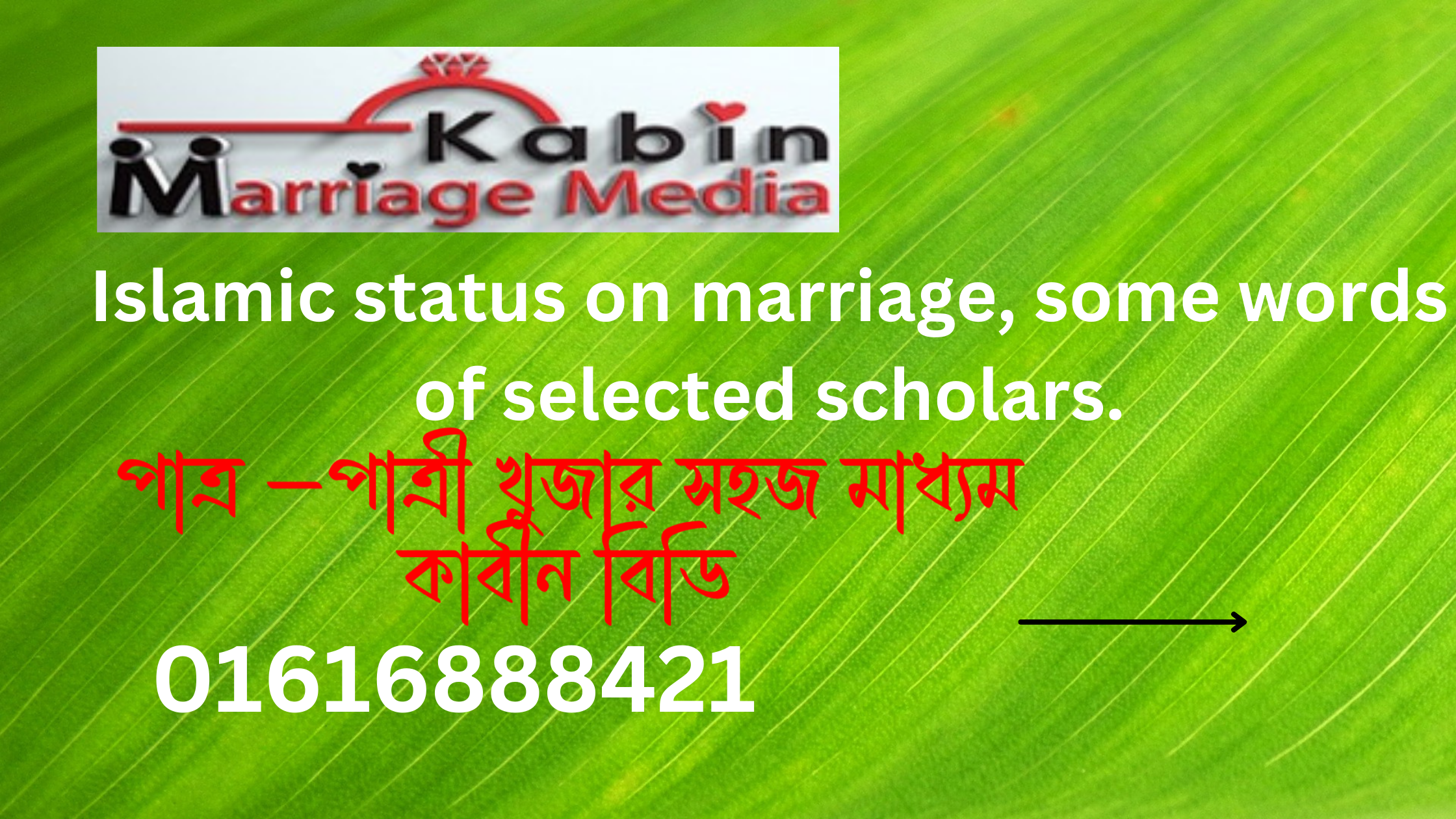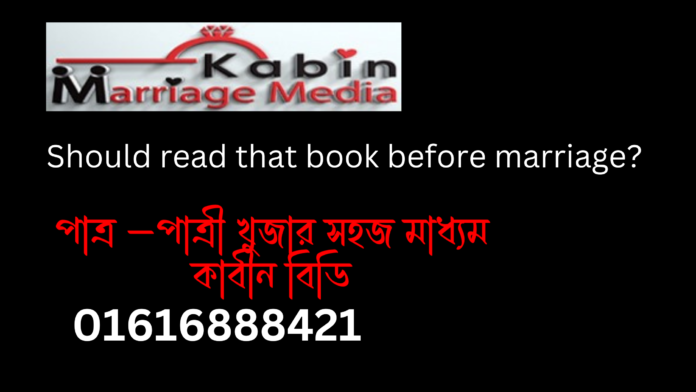Should read that book before marriage?
Whether or not you should read a specific book before marriage is a personal decision that depends on a variety of factors, including your individual beliefs and values, your partner’s perspective, and the content of the book itself.
Potential Benefits of Reading a Book About Marriage:
- Gaining insights and knowledge: Reading books on marriage can expose you to different perspectives on relationships, communication, conflict resolution, and other important aspects of married life. This knowledge can be valuable in helping you prepare for the challenges and joys of marriage.
- Starting conversations with your partner: Discussing the ideas presented in a book with your partner can be a great way to open up communication about your expectations and desires for your future together. This can help you both to gain a deeper understanding of each other and to identify any potential areas of conflict or concern.
- Solidifying your own values and beliefs: Reading about different approaches to marriage can help you to clarify your own values and beliefs about what you want in a relationship. This can be helpful in making sure that you are choosing a partner who is compatible with you on a fundamental level.
Potential Drawbacks of Reading a Book About Marriage:
- Creating unrealistic expectations: Some books on marriage may paint an idealized picture of what married life is like. This can set you up for disappointment when the reality doesn’t live up to your expectations.
- Focusing on problems instead of solutions: Some books may dwell on the potential problems that can arise in marriage. This can lead to anxiety and negativity, which is not helpful for a healthy relationship.
- Feeling pressure to conform: Reading about other people’s experiences with marriage can make you feel pressure to conform to certain expectations or norms. It’s important to remember that every marriage is unique, and there is no right or wrong way to do it.
Additional Considerations:
- The specific content of the book: The decision of whether or not to read a book about marriage before your wedding will also depend on the specific content of the book. Some books may be more relevant to your situation than others. It’s important to choose a book that is well-written and that reflects your own values and beliefs.
- Your partner’s perspective: It’s also important to consider your partner’s perspective on this issue. Some people may feel that reading a book about marriage before the wedding is putting too much pressure on the relationship. Others may be open to discussing the ideas presented in a book together.
- Your own level of comfort: Ultimately, the decision of whether or not to read a book about marriage is a personal one. Do what feels right for you and your partner.
Alternatives to Reading a Book:
If you’re not sure about reading a book about marriage, there are other ways to learn about and prepare for married life. You could:
- Talk to married couples: Ask your friends, family members, or mentors who are married about their experiences. They can offer you valuable insights and advice.
- Take a premarital counseling course: Many couples find premarital counseling to be helpful in preparing for marriage. A counselor can help you and your partner to identify potential areas of conflict and to develop communication skills.
- Attend workshops or seminars: There are often workshops and seminars available on topics related to marriage. These can be a great way to learn new information and to meet other couples who are planning to get married.
Ultimately, the decision of whether or not to read a book about marriage before your wedding is up to you. There is no right or wrong answer, and the most important thing is to do what feels right for you and your partner.
I hope this information is helpful. Please let me know if you have any other questions.
Islamic status on marriage, some words of selected scholars.

In Islamic tradition, marriage is considered a sacred institution, a bond established on the principles of love, compassion, mutual respect, and commitment. Numerous scholars and personalities within the Islamic world have offered insightful perspectives and words of wisdom regarding marriage. Here, I’ll provide a compilation of thoughts and teachings from renowned scholars:
- Prophet Muhammad (PBUH): The Prophet Muhammad (peace be upon him) emphasized the importance of marriage as a cornerstone of society. He said, “When a man marries, he has fulfilled half of his religion; so let him fear Allah regarding the remaining half.”
- Imam Ali ibn Abi Talib: Imam Ali, the cousin and son-in-law of Prophet Muhammad, spoke eloquently about the significance of choosing a spouse wisely. He said, “Marry someone who is deeply interested in the religion because it will be through that person that your children will acquire their religious identity.”
- Imam al-Ghazali: Imam al-Ghazali, a prominent Islamic theologian, stressed the importance of communication and mutual understanding in marriage. He said, “Marriage is a contract that demands daily renegotiation.”
- Imam Ibn Qayyim al-Jawziyya: Ibn Qayyim al-Jawziyya, a medieval Islamic scholar, highlighted the spiritual aspect of marriage, saying, “The foundation of a successful marriage is built on patience, love, loyalty, sacrifice, and perseverance for the sake of Allah.”
- Imam Malik ibn Anas: Imam Malik, the founder of one of the four Sunni schools of Islamic jurisprudence, emphasized the value of kindness and compassion in marriage. He said, “The best of you is the best to his family, and I am the best among you to my family.”
- Sheikh Ibn Taymiyyah: Ibn Taymiyyah, a renowned Islamic scholar, emphasized the importance of mutual respect and understanding between spouses. He said, “The foundation of a happy marriage is mutual respect, love, understanding, and the eagerness to help one another.”
- Sheikh Muhammad al-Ghazali: Sheikh Muhammad al-Ghazali, a prominent Islamic thinker of the 20th century, spoke about the necessity of trust and loyalty, stating, “In marriage, trust is more important than love. Love can exist without trust, but trust cannot exist without love.”
- Sheikh Abd al-Hamid Kishk: Sheikh Kishk, a well-respected Egyptian Islamic scholar, highlighted the importance of forgiveness in marital relationships. He said, “A successful marriage requires falling in love many times, always with the same person.”
- Sheikh Yusuf al-Qaradawi: Sheikh al-Qaradawi, a contemporary Islamic scholar, emphasized the equality and partnership between spouses. He said, “Marriage in Islam is a partnership. It is not a master-servant relationship, but a life-long companionship and friendship.”
- Sheikh Ibn Baz: Sheikh Ibn Baz, a highly regarded Saudi Arabian Islamic scholar, emphasized the importance of patience and understanding in resolving marital conflicts. He said, “Patience, understanding, and compromise are the keys to a successful and lasting marriage.”
In conclusion, these selected words from various Islamic scholars underscore the profound significance of marriage in Islam. They emphasize the importance of mutual respect, understanding, communication, trust, and the spiritual dimension of this sacred bond, providing guidance for couples seeking a harmonious and fulfilling marital life based on Islamic principles.
What does the Quran say about marriage?
Marriage in the Quran: A Deep Dive
Marriage, a sacred union, holds immense value in Islam. The Quran, the central text for Muslims, dedicates numerous verses to this vital institution, outlining its various facets, responsibilities, and blessings. In this exploration, we’ll delve deeper into the Quranic perspective on marriage, encompassing its core principles, key verses, and contemporary interpretations.
- Encouragement and Importance:
The Quran encourages marriage in multiple ways, portraying it as a natural desire, a source of tranquility and companionship, and a foundation for a righteous society.
- Natural Desire: “And among His signs is that He created for you mates from among yourselves that you may dwell in tranquility with them, and He has drawn between you love and compassion. Indeed, there are signs in this for a people who reflect.” (Quran 30:21)
- Foundation of Society: “Marry those among you who are single, or your righteous slaves and slave girls. If you are poor, Allah will enrich you from His bounty. And Allah is Most Generous, Most Knowing.” (Quran 24:32)
These verses highlight the importance of marriage in fulfilling human needs, fostering emotional stability, and contributing to a thriving community.
- Core Principles and Values:
The Quran establishes core principles that guide Muslim marriages, emphasizing mutual respect, love, and compassion.
- Equality and Partnership: “They are garments for you and you are garments for them.” (Quran 2:187) This powerful metaphor stresses the interdependence and equal worth of spouses within the marriage.
- Love and Affection: “He created you from a single soul and from it made its mate that it might find comfort in her. And when he covers her with his garment, she becomes tranquil…” (Quran 7:189) This verse emphasizes the natural human need for intimacy and emotional connection within marriage.
- Kindness and Justice: “Live with them in kindness.” (Quran 4:19) and “And if you fear not to be just with regard to orphans, married women or captives…” (Quran 4:3) These verses emphasize the importance of treating one another with fairness and consideration, especially in instances of polygamy, which is permitted under certain conditions with a strict emphasis on equitable treatment.
These principles create a framework for building healthy and fulfilling marriages grounded in mutual respect and compassion.
- Key Verses and Interpretations:
Certain Quranic verses hold particular significance in understanding the Islamic perspective on marriage. Here are a few examples:
- 2:221: “And do not marry believing women except with their permission of their guardians and give them their dower (bridal-money) with good grace…” This verse underscores the importance of obtaining consent from both parties and providing a dower, a gift from the groom to the bride, symbolizing respect and commitment.
- 4:34: “The men are responsible for maintaining their wives from that which Allah has given them… If they obey you, then do not seek a way against them…” This verse outlines the man’s financial responsibility towards his wife but also emphasizes the importance of mutual respect and understanding.
- 4:129: “You will never be able to be completely just with your wives…” While allowing polygamy in specific circumstances, this verse acknowledges the inherent difficulty of perfect equity and encourages monogamy as the preferred option.
It’s crucial to understand that interpretations of certain verses, particularly those concerning polygamy and gender roles, have evolved over time and across different schools of thought within Islam. Contemporary Muslim scholars advocate for interpretations that emphasize gender equality, mutual respect, and the evolving context of modern society.
- Challenges and Contemporary Contexts:
Modern Muslim marriages face several challenges, including cultural influences, changing gender roles, and socio-economic pressures. Some key considerations include:
- Gender Equality: The emphasis on women’s right to education, financial independence, and equal participation in societal spheres has necessitated reevaluations of traditional gender roles within marriage.
- Divorce: While the Quran permits divorce under specific circumstances, its prevalence in some Muslim communities has become a concern. Emphasizing premarital counseling, open communication, and conflict resolution mechanisms can strengthen marriages.
- Domestic Abuse: Sadly, domestic abuse exists within all communities, including Muslim communities. The Quran explicitly condemns violence of any kind, and religious leaders have a responsibility to educate and advocate against such practices.
Addressing these challenges and promoting healthy Muslim marriages requires continuous dialogue, education, and adaptation based on Quranic principles while remaining sensitive to contemporary realities.
- Conclusion:
The Quran offers a comprehensive yet nuanced perspective on marriage, emphasizing its value as a fulfilling partnership built on love, respect, and responsibility. Understanding these core principles through careful study and interpretation can guide Muslim couples in navigating the complexities of marriage and building families.
bangladeshi matrimonial site
bebaha com login
borbodhu com login


